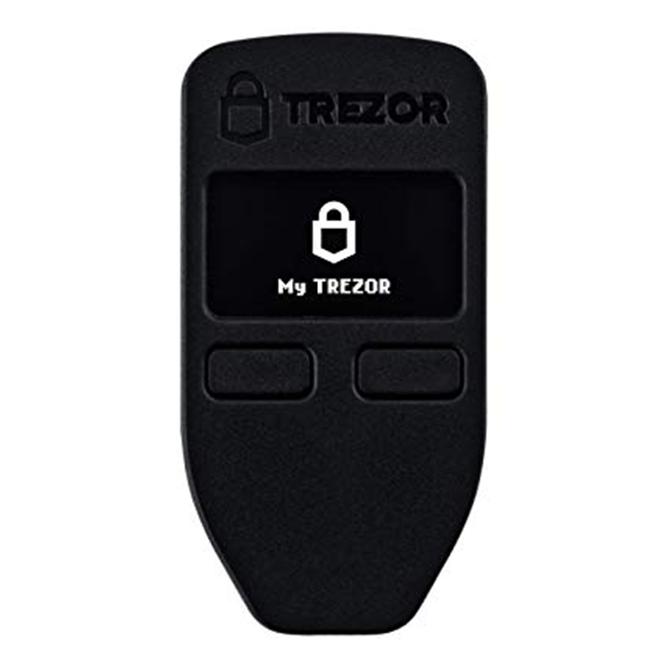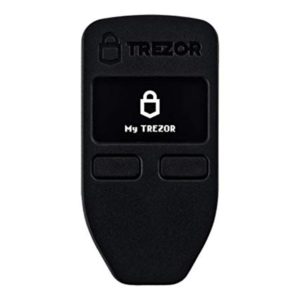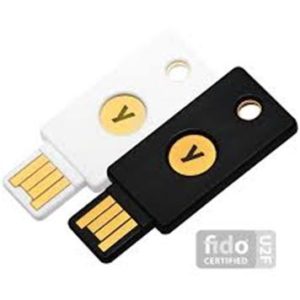Online security issues are the same everywhere, and theyalso share some commonalities despite their diverse individual aspects. This is evident in our Yubikey vs. Trezor review.
On the surface, it might seem strange to you that we choose to review these different items. After all, one is a wallet for cryptocurrency, while the other is a series of U2F keys. However, they do have one common approach – increasing the security of your data and other assets you own online, which is a major concern of many people in the online space today.
What are the differences between Yubikey and Trezor? How do they compare?
| Model | Yubikey | Trezor |
| Type of security focus | U2F key | Cryptocurrency wallet |
| Compatibility | FIDO-compliant sites | Windows, MacOS, Linux |
| Dimensions (inches) | 0.71 x 0.12 x 1.77 | 2.4 x 1.2 x 0.2 |
| Check here | Check here |
Yubikey vs. Trezor – what are the differences?
How they work
The Trezor is mainly a hardware wallet, which enables you to store your coins safely, as well as receive and send a massive range of cryptocurrencies – not just Bitcoin. Its history dates back to 2014 through a company called SatoshiLabs from the Czech Republic.
The Yubikey operates in a different way, as it primarily relies on U2F technology, where you use the key to authenticate you alone, and increase your security since no one else can enter your account. The key also includes USB for the desktop experience and NFC for the mobile users, making it easy for you to use it regardless of the device you prefer.
Security mechanism
When it comes to storing your money, you know how important your wallet is – it even stores other important items such as your ID card. In the same way, you need a proper wallet for your coins – which is why the existence of the Trezor wallet is a major win.You can do this through the main extension on Chrome, through the website at myTrezor.com, or through the command line. Each will need you to enter the password, pin code and name of the device.
However, the Yubikey only allows you to access your account, rather than the typical password system that risks hacking (unless you use a two-factor authentication system as a backup).They are all very good at working with numerous protocols and platforms, such as through their tap-and-go authentication with Windows 10 devices and Android applications.
Compliant sites
The Yubikey is very good at working with numerous protocols and platforms, such as through their tap-and-go authentication with Windows 10 devices and Android applications. The main information that regards the use and any other questions you may have is on the main Yubico website.
The Trezor wallet is a cryptocurrency wallet, but it also has its fair share of access to protocols – it can even access any OS that you want, such as the ‘big 3’, Linux, Mac, and Windows.
Trezor
This wallet has a direct connection to an internet server, so the possibility of a hacker accessing your data or coins is next to impossible. You need to note one thing though – this wallet will not be profitable or useful enough to you if you own a small number of coins.
Thanks to it allowing you to control your private keys, it allows you to back up the entire wallet through the 24 words you generate during setup from your computer/laptop and the device.For you to set up the wallet, you will need a pin code, as well as the spending process. If you guess the code incorrectly, the waiting time between subsequent guesses is increased by a power of two.
Pros
- Very secure in terms of the log in and securing of data
- Easy to set up
- Resistant to external damage
Cons
- It is expensive, and can be out of reach if you are on a budget
- Uneconomical if you have a few coins
Yubikey
There is not one specific Yubikey key, as there are several in the series. Overall, though, the series is proving to be very popular among many, even for those that are just starting in the online security space. Its distinctive feature is that the key includes USB for the desktop experience and NFC for the mobile users.
Pros
- Great process of setting up, which is really easy
- Supports many protocols
- Works very well when using NFC to connect to mobile devices
Cons
- It fails to work with Office 365
Conclusion
At the end of the day, these are two different methods of securing your information and sensitive data, but they have their similarities. Your choice will ultimately depend on what you want, but the Yubikey will come out on top because of its wider accessibility.
FAQs
Why is it important to have a cryptocurrency wallet?
As mentioned earlier, for you to store and trade in your currency coins, you need somewhere safe to store them in – just like a U2F key that stores your digital certificates safely. A digital wallet therefore, helps you perform your transactions easily, in form of digital records of transactions to help you monitor your coin balance.
On the other hand, is there an advantage of using U2F keys like Yubikey?
U2F is the most reliable mode of accessing your online accounts safely, as it allows you to enter multiple accounts without the need of a password or exposure risks, all through the use of one device.
How do you use both?
The use of the U2F key is not as difficult as it may seem on the surface, regardless of whether you deal in Yubikey or Nitrokey Pro. The key will basically work as a second factor authentication.
Additionally, when it comes to the wallet, simply plug in the device to an internet-enabled device or computer, and enter your PIN and confirm your transactions.
Is the U2F security key a biometric device?
This really depends on the model that you use. In certain models, you might need to tap the gold disk or button on the top of the security key so that you activate it. However, itis important to note that U2F keys are not a replacement of biometric methods of authentication.
What if they get stolen?
The person who steals the key or wallet cannot access your account unless they know your password, which they do not store.



